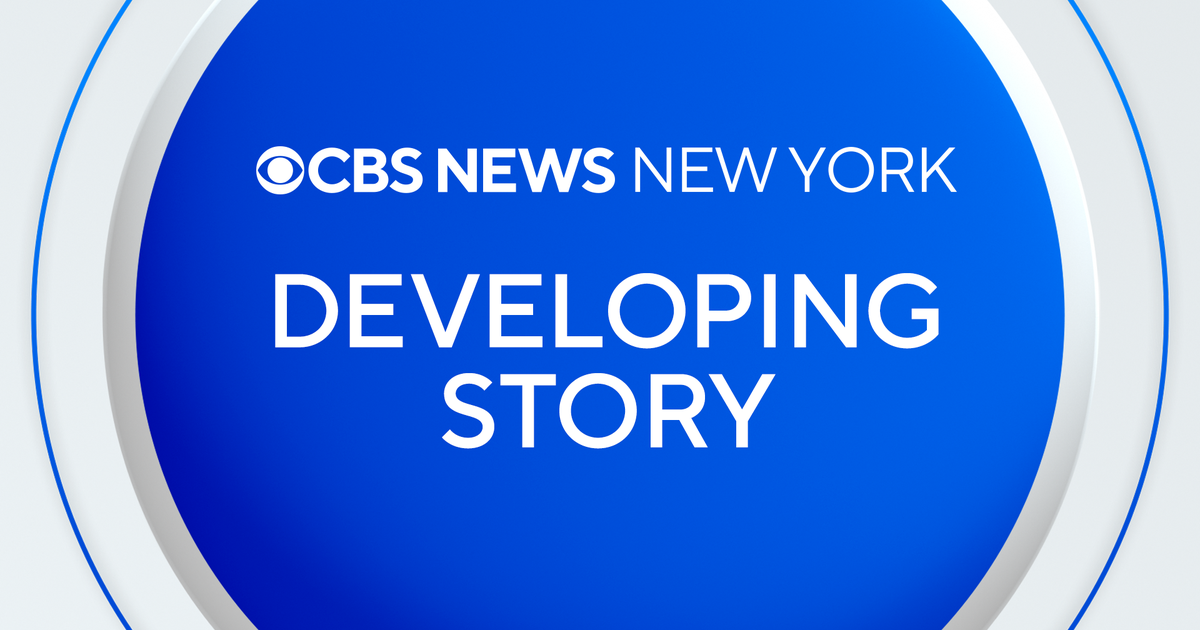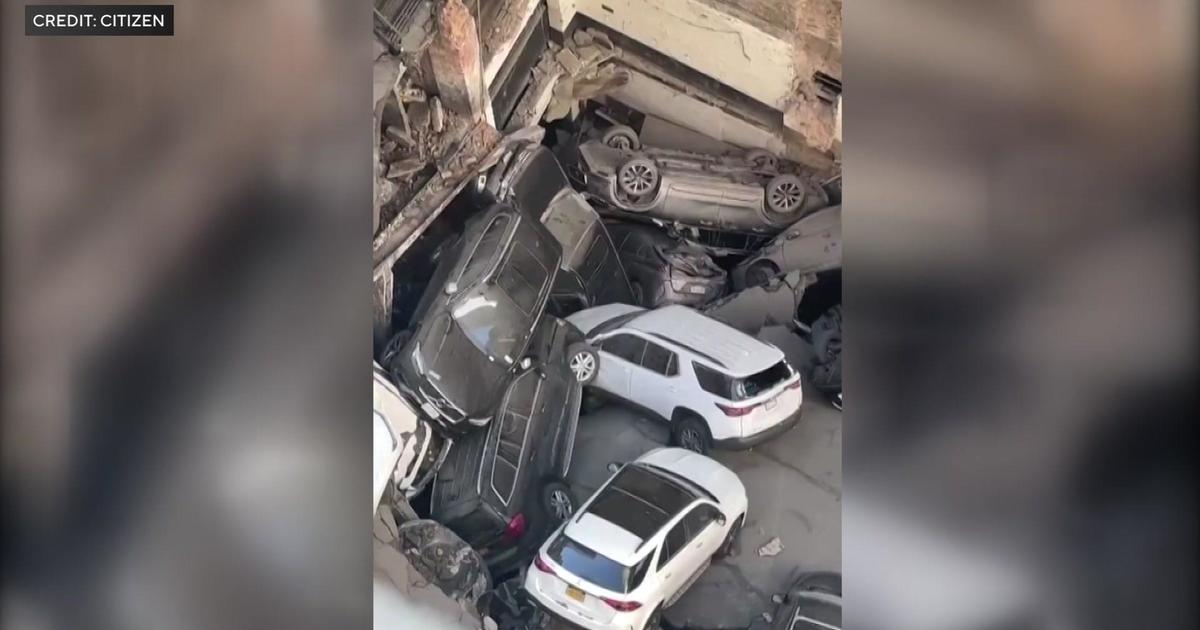U.S. Supreme Court Rules Against New York's Restrictions On Religious Gatherings
NEW YORK (CBSNewYork/AP) -- The U.S. Supreme Court has ruled against Gov. Andrew Cuomo and temporarily blocked restrictions on religious services in New York.
Cuomo imposed capacity limits on houses of worship in red and orange zones to slow the spread of the coronavirus.
Web Extra: Read the ruling (pdf)
On Thursday, he said the court's ruling isn't final and there won't be any changes to current restrictions.
"I'm a former altar boy, Catholic... So I fully respect religion. There's a time in life we need it. The time is now, but we want to make sure we keep people safe at the same time, and that's the balance we're trying to hit," he added.
The Diocese of Brooklyn, however, praised the court's decision.
"I am gratified by the decision of the Justices of the United States Supreme Court, who have recognized the clear First Amendment violation and urgent need for relief in this case. I am proud to be leading the Diocese of Brooklyn and fighting for our sacred and constitutional right to worship," Bishop Nicholas DiMarzio said in a statement.
Church-goers who agree say they prefer in-person worship instead of online.
"I think it's essential because people need to get closer to God right about now," Midtown resident Katherine Gerald told CBS2's Dave Carlin.
"Even in the pandemic, the Constitution cannot be put away and forgotten," DiMarzio said.
The bishop added the restrictions failed to recognize how large some churches are and the strict protocols Catholics put in place.
He and other religious leaders say the ruling, which heads for an appeal that's expected to send it back to the Supreme Court, can be used to challenge and overturn other restrictions elsewhere.
"It's not about forcing people to come to church. It's about giving them the right to come when they wish to come and that's the First Amendment right," DiMarzio said.
Timothy Cardinal Dolan tweeted his congratulations to Bishop DiMarzio and the diocese.
"Our churches are essential," he wrote.
The American and New York civil liberties unions said they support religious freedom but not the ruling.
"The freedom to worship is one of our most cherished fundamental rights, but it does not include a license to harm others or endanger public health," ACLU Program of Freedom of Religion and Belief Daniel Mach said.
"New York's temporary restrictions on indoor gatherings do not discriminate against houses of worship, and, in fact, treat them better than comparable non-religious gatherings," NYCLU Executive Director Donna Lieberman added. "The Supreme Court's decision will unfortunately undermine New York's efforts to curb the pandemic."
The five-to-four decision came down just after midnight, with Chief Justice John Roberts and the court's three library justices dissenting.
Justice Amy Coney Barrett's vote became the deciding factor.
Similar cases regarding restrictions in Nevada and California resulted in opposite rulings.
Those were handed down earlier this year when Justice Ruth Bader Ginsburg was on the court.
MORE FROM CBS NEW YORK
- COVID In NYC: In Response To New Restrictions, Staten Island Restaurant Declares Itself An 'Autonomous Zone'
- COVID In New Jersey: Newark Under 10-Day Stay-At-Home Advisory
- COVID-19 Survivor Returns Home For Thanksgiving After Spending 7 Months At Hospital, Rehab Facility
The impact of the court's action is muted in part because the Catholic and Orthodox Jewish groups that sued to challenge the restrictions are no longer subject to them.
"The zone that they were talking about has already been moot. It expired last week. So I think this is really just an opportunity for the court to express its philosophy in politics. It doesn't have any practical effect," Cuomo said Thursday.
The Diocese of Brooklyn and Agudath Israel of America have churches and synagogues in areas of Brooklyn and Queens previously designated red and orange zones. In those red and orange zones, the state had capped attendance at houses of worship at 10 and 25 people, respectively. But the those particular areas are now designated as yellow zones with less restrictive rules neither group challenged.
The justices acted on an emergency basis, temporarily barring New York from enforcing the restrictions against the groups while their lawsuits continue. In an unsigned opinion the court said the restrictions "single out houses of worship for especially harsh treatment."
"Members of this Court are not public health experts, and we should respect the judgment of those with special expertise and responsibility in this area. But even in a pandemic, the Constitution cannot be put away and forgotten. The restrictions at issue here, by effectively barring many from attending religious services, strike at the very heart of the First Amendment's guarantee of religious liberty," the opinion said.
The opinion noted that in red zones, while a synagogue or church cannot admit more than 10 people, businesses deemed "essential," from grocery stores to pet shops, can remain open without capacity limits. And in orange zones, while synagogues and churches are capped at 25 people, "even non-essential businesses may decide for themselves how many persons to admit."
Roberts, in dissent, wrote that there was "simply no need" for the court's action. "None of the houses of worship identified in the applications is now subject to any fixed numerical restrictions," he said, adding that New York's 10 and 25 person caps "do seem unduly restrictive."
"The Governor might reinstate the restrictions. But he also might not. And it is a significant matter to override determinations made by public health officials concerning what is necessary for public safety in the midst of a deadly pandemic," he wrote.
Roberts and four other justices wrote separately to explain their views. Barrett did not.
The court's action was a victory for the Roman Catholic Church and Orthodox Jewish synagogues that had sued to challenge state restrictions announced by Cuomo on Oct. 6.
The Diocese of Brooklyn, which covers Brooklyn and Queens, argued houses of worship were being unfairly singled out by the governor's executive order. The diocese argued it had previously operated safely by capping attendance at 25% of a building's capacity and taking other measures. Parts of Brooklyn and Queens are now in yellow zones where attendance at houses of worship is capped at 50% of a building's capacity, but the church is keeping attendance lower.
Avi Schick, an attorney for Agudath Israel of America, wrote in an email: "This is an historic victory. This landmark decision will ensure that religious practices and religious institutions will be protected from government edicts that do not treat religion with the respect demanded by the Constitution."
"I think that for the country as a whole, it was a great victory and I'm hopeful that its ramifications will be felt far beyond the red zones and orange zones of New York," said Rabbi Dovid Zwiebel, with Agudath Israel of America.
Two lower courts had sided with New York in allowing the restrictions to remain in place. New York had argued that religious gatherings were being treated less restrictively than secular gatherings that carried the same infection risk, like concerts and theatrical performances. An email sent early Thursday by The Associated Press to the governor's office seeking comment was not immediately returned.
There are currently several areas in New York designated orange zones but no red zones, according to a state website that tracks areas designated as hot spots.
The governor was asked what if anything this means for houses of worship outside Brooklyn. Like in the orange zone covering for much of Staten Island. Cuomo's legal counsel, said it remains unchanged.
(© Copyright 2020 CBS Broadcasting Inc. All Rights Reserved. The Associated Press contributed to this report.)



